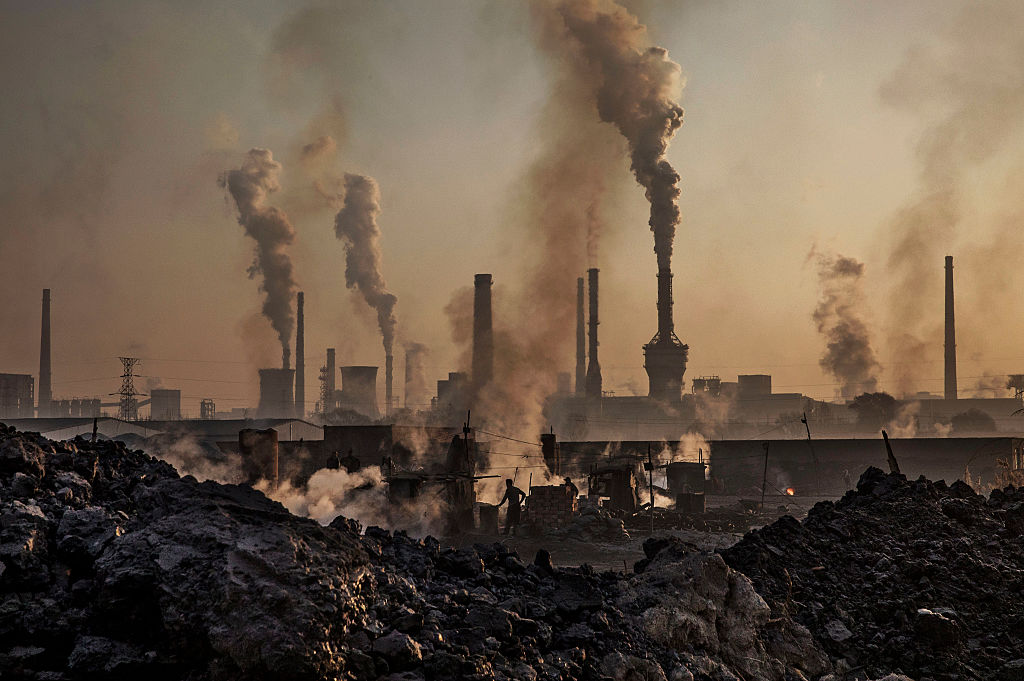
Can US President-elect Joe Biden walk and chew gum at the same time? If walking is managing domestic pressures and chewing gum is pursuing a balanced foreign policy, the answer is far from clear. The tension between bipartisan calls to contain China and the imperative of cooperating with Chinese President Xi Jinping on climate change is a case in point.
Biden plans to marshal a broad alliance of democratically minded Pacific and European countries to check China’s expansionism. In Xi’s view, however, China may be able to use the promise to cooperate on climate change as a source of leverage with which to thwart Biden’s containment strategy, especially in light of Republican opposition to climate action and hostility toward China.
The stakes could not be higher. Humanity faces a truly calamitous future if the world’s two largest economies—and largest CO2 emitters—don’t commit to cooperating to address climate change. And yet the grim prospect that the Sino-American geopolitical competition will hamper climate cooperation is rarely discussed in either Washington or Beijing.
In the United States, the prevailing wisdom is that curtailing its CO2 emissions is in China’s self-interest. Beyond being the world’s largest CO2 emitter, China is the world’s leading consumer of coal, accounting for 52% of global use. And high levels of pollution threaten to undermine support for the Chinese Communist Party among a growing middle class demanding a cleaner environment. International pressure is also mounting.
Unfortunately, this view fails to account for China’s belief that, on climate change, the West needs it more than it needs the West. It will thus demand a high price, especially from the US and its European allies, for its contributions. And, to avoid losing the international community’s goodwill—or overplaying its hand—it will likely proceed in a calculated manner.
The first prong of China’s strategy is already visible. At the recent Climate Ambition Summit, convened by the United Nations, Xi reiterated his pledge to reach peak CO2 emissions before 2030 and to achieve carbon neutrality before 2060.
Xi also vowed to meet even more ambitious climate goals by 2030. These include lowering CO2 emissions per unit of GDP by 65% (from 2005 levels), ensuring that renewables account for a quarter of primary energy consumption and increasing total installed wind and solar capacity to more than 1.2 billion kilowatts (roughly three times China’s installed capacity in 2019). Such declarations aim to boost China’s international profile—and put the US on the spot.
The second prong of China’s strategy has not yet been unveiled, but it’s reasonable to expect it to try to leverage its apparent climate leadership to secure economic and political concessions. China would first call for broadly cooperative, non-confrontational international dialogue and request tariff reductions—outgoing President Donald Trump’s administration imposed a 30% tariff on Chinese solar panels—and clean-technology transfers, to help it meet its climate commitments. Besides these pragmatic demands, China’s leaders will be tempted to pressure the West to tone down its criticisms of Chinese human-rights abuses, particularly over the crackdown in Hong Kong and the mass incarceration of largely Uyghur Muslims in Xinjiang.
This two-pronged strategy will put Biden in a bind. If his climate pledges fall short of the international community’s expectations, China will look like the more responsible power. If he commits to ambitious climate goals, Republicans will undercut his credibility by sabotaging the relevant policies in Congress and the courts. Even if Republicans do not manage to block climate action today, there is the risk that a Republican administration—possibly even led by a second-term Trump—could reverse climate policies in 2024, as Trump did when he became president in 2017.
At the same time, given bipartisan antipathy toward China in the US, Biden would probably not be able to grant even modest concessions on tariffs or technology transfers, and he would be under intense pressure to confront Xi over human-rights abuses. China could then use this as an excuse to adopt a similarly hardline stance, insisting that Biden make irrevocable climate commitments—an impossible demand given Republican opposition—before it takes more action.
The resulting stalemate would appear to be America’s fault, undermining its position vis-à-vis China on the world stage. But it is from a climate perspective that this scenario would be truly catastrophic. The Biden administration must recognise how easily it could happen—and do everything possible to ensure that it doesn’t.

